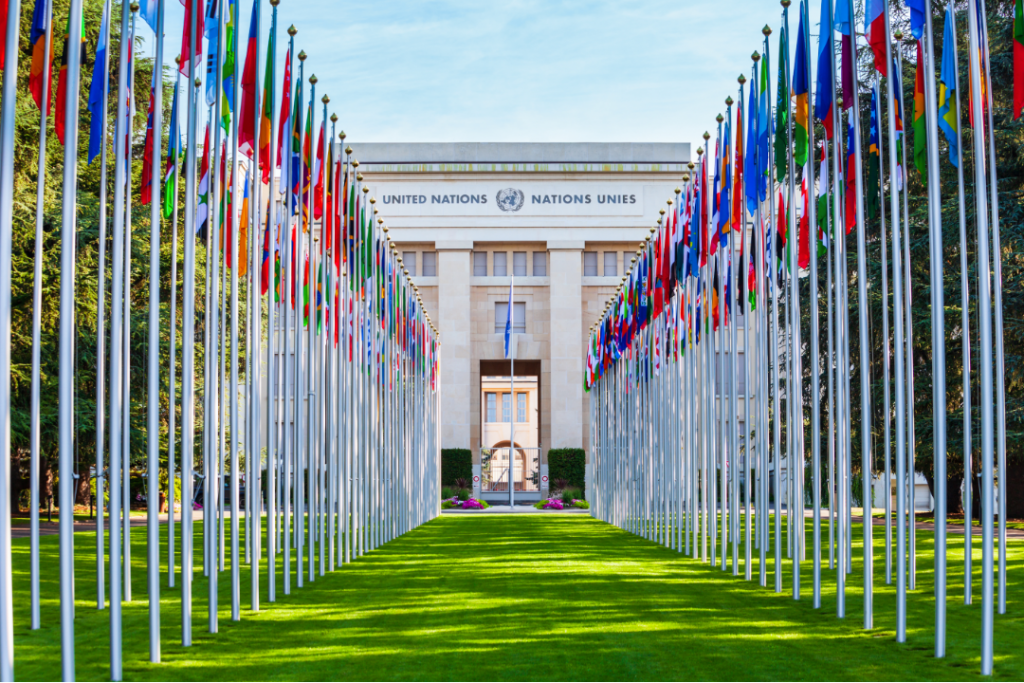Education & Career Trends: July 23, 2024
Curated by the Knowledge Team of ICS Career GPS

Content compiled and curated by Team ICS
“Politics,” according to Aristotle, is the “queen of the sciences.” Politics touches every aspect of our lives, seeking to understand relationships between governments, voters, and interest groups. If you are the kind of person who wants to know more about why governments do what they do, and how they operate, Political Science is the subject for you.
Why Study Political Science?
Studying Political Science deepens your understanding of social, political and economic relations between countries and helps you appreciate power relations at both national and international levels. In this era of globalisation, it’s incredibly relevant and exciting. Political Science also strengthens your research, writing, analytical, and speaking abilities. Students maximise their capacity to analyse and interpret the significance of political events and government processes to understand, evaluate, and even shape them.
What Do Political Scientists Do?
Political scientists study matters concerning the allocation and transfer of power in decision-making, the roles and systems of governance (including governments and international organisations), political behaviour and public policies. They measure the success of governance and specific policies by examining factors such as stability, justice, material wealth, and peace. Some political scientists seek to advance positive theses by analysing politics, while others advance normative theses by making specific policy recommendations.
Political scientists also provide frameworks from which journalists, special interest groups, politicians, and the electorate analyse issues. They may serve as advisers to specific politicians or even run for office themselves. You can find political scientists working in governments, political parties, or as civil servants. They may also be involved with non-governmental organisations (NGOs) or political movements. In various capacities, people educated and trained in political science can add value and expertise to corporations.
What Should I Study?
To pursue Political Science, you need to pass the Plus Two examination or its equivalent. Students should have the ability to understand concepts and apply them, as there’s a lot of reading and research involved. Political Science comprises four main areas of study:
- Comparative Politics: Examines political institutions and societies of particular regions and looks at the comparisons and contrasts between them.
- International Relations: Focuses on the relations between states and foreign and international organisations like the UN and NATO.
- Political Theory: Examines theories about politics and society and the methodological questions that arise in studying political life.
- Public Policy: Explores and evaluates the processes by which national, regional and local institutions of the state formulate and implement policies.
Career Prospects
A degree in Political Science prepares you for a variety of rewarding careers. The prospects for students opting for this course widen when they enter government departments, international organisations, or voluntary associations. Political Science graduates could join the media as political journalists, analysts or researchers. They can join politics or appear for the civil services examination, which has political science as an optional subject. It is also a useful subject for pursuing law.
Think tanks, research institutes, polling and public relations firms often employ political scientists. Newspapers, public interest research groups, and public opinion pollsters look for researchers with a thorough background in socio-political economy, policy analysis and political behaviour. Some political analysts advance to top-level positions like political advisors to state and central ministers. They can even become Parliament or State Legislative Assemblies members or serve various political parties as party presidents, members, or activists. A related field to consider is International Relations.
Top Colleges Offering Political Science in India
Almost all colleges offer courses in Political Science, but some of the top colleges are:
- St. Stephen’s College, University of Delhi: www.ststephens.edu
- Lady Shri Ram College, University of Delhi: www.lsrcollege.org
- Miranda House, University of Delhi: www.mirandahouse.ac.in
- Hindu College, University of Delhi: www.hinducollege.org
- Jesus and Mary College, University of Delhi: www.jmc.ac.in
- Ramjas College, University of Delhi: www.ramjascollege.edu
- Hansraj College, University of Delhi: www.hansrajcollege.com
- Delhi College of Arts and Commerce, New Delhi: www.dcac.du.ac.in
- Banaras Hindu University, Varanasi: www.bhu.ac.in
- MS University, Baroda: www.msubaroda.ac.in
- Presidency College, University of Calcutta, Kolkata: www.presidencycollegekolkata.ac.in
- St. Xavier’s College, University of Calcutta, Kolkata: www.sxccal.edu
- Loreto College, Calcutta University, Kolkata: www.loretocollege.in
- St. Xavier’s College, Mumbai: www.xaviers.edu/main
- Jai Hind College, Mumbai: www.jaihindcollege.com
- Sophia College, University of Mumbai, Mumbai: www.sophiacollegemumbai.com
- Fergusson College, University of Pune: www.fergusson.edu
- St. Joseph’s College of Arts & Sciences, Bangalore: www.sjc.ac.in
- Mt. Carmel College, Bangalore: www.mountcarmelcollegeblr.co.in
- Christ University, Bangalore: www.christuniversity.in
- Madras Christian College, University of Madras, Chennai: www.mcc.edu.in
- Presidency College, Chennai: www.presidencychennai.com
- Loyola College, University of Madras, Chennai: www.loyolacollege.edu
…
Have you checked out yesterday’s blog yet?
Career Prospects in Digital Marketing
(Disclaimer: The opinions expressed in the article mentioned above are those of the author(s). They do not purport to reflect the opinions or views of ICS Career GPS or its staff.)
Like this post? For more such helpful articles, click on the button below and subscribe FREE to our blog.




